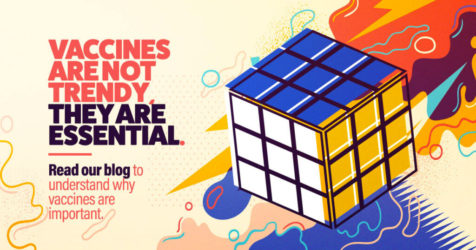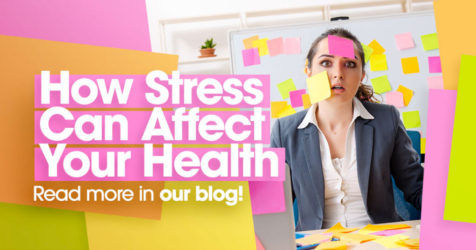Reasons to Get the HPV Vaccine

Many routinely recommended childhood vaccines have been around for decades, so parents are familiar with the conditions they protect against. However, one of the more recent vaccinations that healthcare experts have championed is the HPV (Human papillomavirus) series. The HPV vaccine, first introduced in 2006, is recommended for preteens (ages 9 to 11). An HPV infection is typically transmitted sexually, so parents and young adults sometimes wonder whether they should get the vaccine or whether their children may be eligible, especially if they are not sexually active.
However, what many parents don’t realize is that the HPV vaccine not only protects against certain types of genital warts, but it is also the only vaccine that confers protection against cancer. Here’s what you need to know about HPV infections, including their risk factors and why you must get vaccinated.
The Background on HPV
To understand the importance of getting vaccinated against HPV, it’s vital to learn a little more about the infection in the first place. According to the U.S. Centers for Disease Control and Prevention (CDC), HPV is the most common sexually transmitted infection (STI), causing new infections in 13 million people each year. HPV can affect anyone, and it is spread through sexual contact, such as vaginal, anal, or oral sex. Most people with an HPV infection are unaware that they have HPV and have no symptoms.
HPV comes in many strains. Some strains of HPV cause genital warts and some strains are more likely to cause cancers, including cervical cancer (most commonly), or cancer of the vagina, vulva, penis, anus, or the posterior throat. Luckily, a person’s immune system can clear most HPV infections without outside assistance. However, when an HPV infection doesn’t clear up on its own, it can cause problems. It can be difficult to predict who will be able to clear an HPV infection independently, and who will go on to develop an HPV-related cancer years down the line. Unfortunately, the CDC notes that 36,000 people are affected by HPV-related cancer each year.
Risk Factors for Developing an HPV Infection
While HPV is pervasive throughout the population, and the CDC notes that almost everyone will get an HPV infection at some point if they’re not vaccinated, certain risk factors can increase your likelihood of getting an HPV infection. These include being immunosuppressed, not reliably using condoms during sexual encounters, and having non-monogamous sexual relationships. However, even people in a monogamous sexual relationship can still get HPV, which is why it’s critical to do what you can to protect yourself against the virus.
How to Prevent an HPV Infection
You can prevent the unwanted consequences of an HPV infection by minimizing your personal risks—using condoms for protection during sexual encounters and limiting your non-monogamous sexual relationships. However, an even more powerful tool in the fight against HPV infections, and their consequences, is the HPV vaccination series. The HPV vaccine currently available in the United States is known as the Gardasil-9 (9vHPV). Gardasil-9 protects against nine strains of HPV, including 16 and 18, which are the strains that cause the majority of HPV-related cancers.
When Should Adolescents Get an HPV Vaccine?
HPV vaccines are recommended by healthcare authorities for children ages 11-12 (and children can be eligible as early as age 9). While this may seem strange for parents, and some worry that it might signal that they are permissive to sexual activity at that age, or that they are anticipating that their children will soon become sexually active, the reason for starting the vaccine series before children become sexually active is that it will be more effective. Children who start the series before age 15 will only need two doses; after age 15, three are required. The vaccine is not recommended for most adults over age 26, as most people will have already been exposed to HPV at that point.
Reasons for HPV Vaccination
Even after learning about HPV, and the rationale for the HPV vaccine, many parents still have questions about adding another shot to their children’s vaccine repertoire. Because cervical cancer only affects women, many parents of male adolescents wonder if they should encourage an HPV vaccine. However, HPV vaccines are equally essential for male preteens because they can lower their risk of genital warts and their risk of developing cancers of the penis, anus, or throat. The HPV vaccine has been monitored for more than 15 years, and it is extremely well-tolerated. The HPV vaccine is also very effective. The HPV vaccine has changed the outlook for HPV infections and cervical precancers. Since 2006, the CDC notes that genital warts and cancer-related HPV Infections have decreased by 88% among teen girls, and 81% among adult women.
How to Learn More About HPV Vaccines
Getting vaccinated against HPV can be a powerful form of cancer prevention for your children—and ensuring that they’re vaccinated before they ever have a chance to come into contact with the virus is a way of investing in their future health. To learn more about the HPV vaccine, visit the CDC’s HPV index page.


